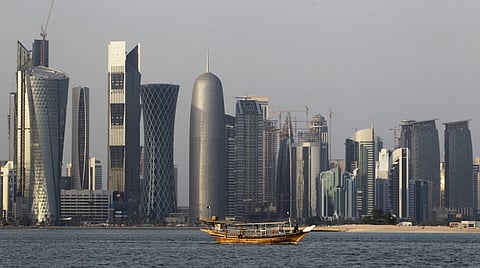‘Boycott to continue as long as Doha doesn’t change’
Tension in Jerusalem and the Qatari crisis capture the headlines of the region’s papers

International reactions to Israeli violation of the sanctity of Al Aqsa Mosque were, to a great extent, are the result of Jordan’s initiatives to counter Israeli abuses, said the Jordan Times. “Jordan’s King Abdullah has spared no effort, right from the outset, to convince Israel that its attempts to change the status quo in [occupied] East Jerusalem should be stopped and revoked. Foreign Minister Ayman Safadi has also exerted all diplomatic efforts to restore calm and normality at Al Aqsa Mosque, and remove all obstacles in the face of worshippers. Safadi has been in touch with many Arab foreign ministers and in close contact with Palestine Liberation Organisation chief negotiator Saeb Erekat, coordinating Jordanian and Palestinian National Authority efforts to end the crisis in [occupied] East Jerusalem. Hopefully, Israel will listen to reason and stop its provocative actions of the past few days before tension between the two sides gets out of control and becomes a deadly conflict.”
Israeli Prime Minister Benjamin Netanyahu’s right-wing government has been pushing the Palestinians up against the wall year-round, despite them being at the edge of their tolerance, wrote Lebanon’s Daily Star. “With their patience wearing thin and with nothing more to lose, they are fast becoming dead men walking, and all indications suggest that an eruption by the Palestinian people, while they wait for grievances to be addressed, will make the procrastinators in Tel Aviv regret their dawdling. It is also worth reminding Israel’s hard-line officials that the then-defence minister Ariel Sharon’s visit to the grounds of the Al Aqsa Mosque was the catalyst for the Second Intifada, and the rest is history. With scant diplomatic and political efforts to rein in what’s happening now, it is obvious that matters will go from bad to worse, with the seeds of a more violent Intifada spreading in tandem with the scope of Israeli measures in Al Aqsa.”
It is not possible for any rational nation to continue carrying out a hostile policy towards its neighbours, and that is exactly what we are witnessing with the Qatari model, wrote UAE’s Al Bayan. “Qatar is betting on using international pressure to stop boycott. This is a rather poor bet, particularly since the four countries that took the decision to boycott Qatar did not choose to do so out of hostility or tyranny, but rather due to evidence that proves Doha’s link to terrorism. Qatar is also betting on the fact that the boycott cannot possibly go on forever by referring to the following question: What will happen after the boycott? Qatar should know that the four nations made the decision knowing that there is a possibility that Qatar might be stubborn and arrogant, and that is why the four nations are insisting that they will not go back on their demands. The boycott will continue for as long as Doha does not change.”
Who would have imagined that the speech of the Qatari Emir, Shaikh Tamim Bin Hamad Al Thani, would not point out the real reason behind the dispute but would, instead, distance itself from unfulfilled 2014 Riyadh Agreement, which was signed by him, asked the London-based Pan-Arab paper Asharq Al Awsat. “What matters is that Qatar should implement the demands, regardless of the way it chooses to promote its concessions ...”, the paper said.


